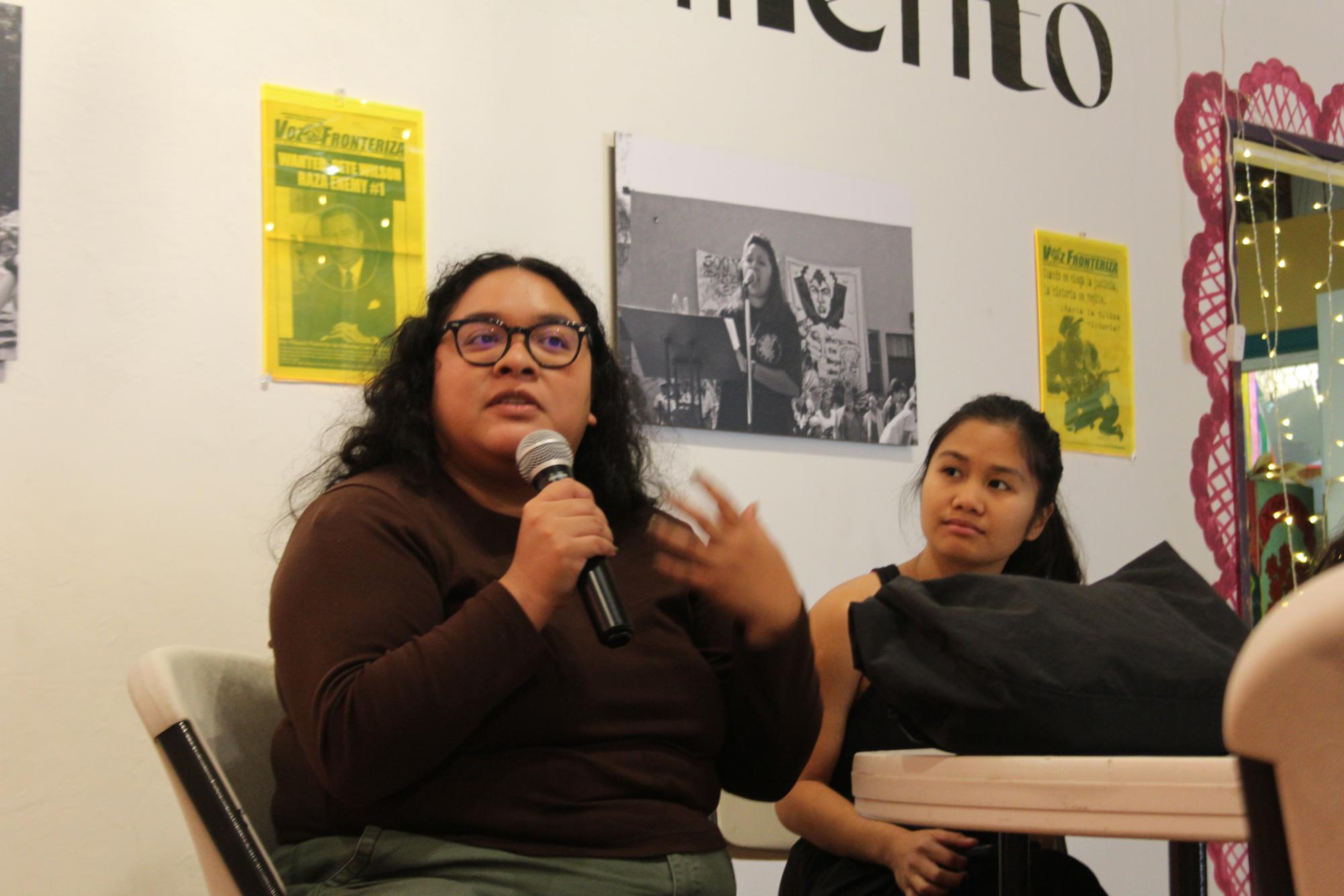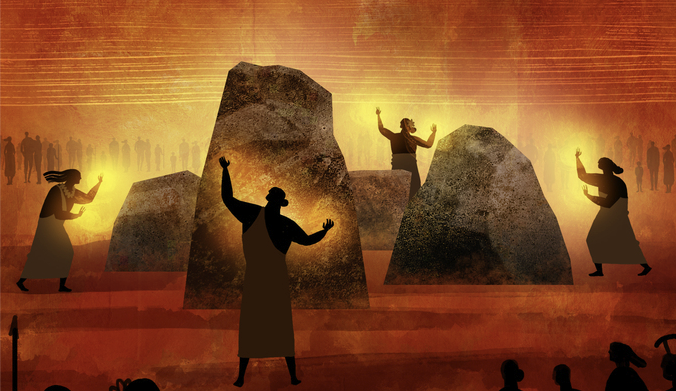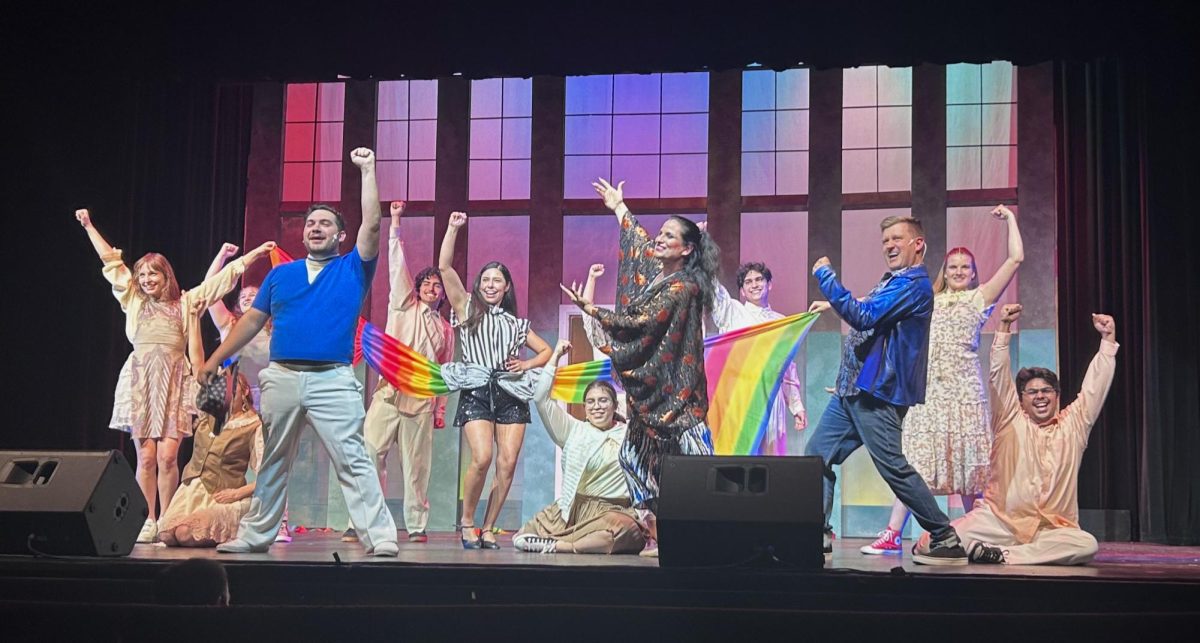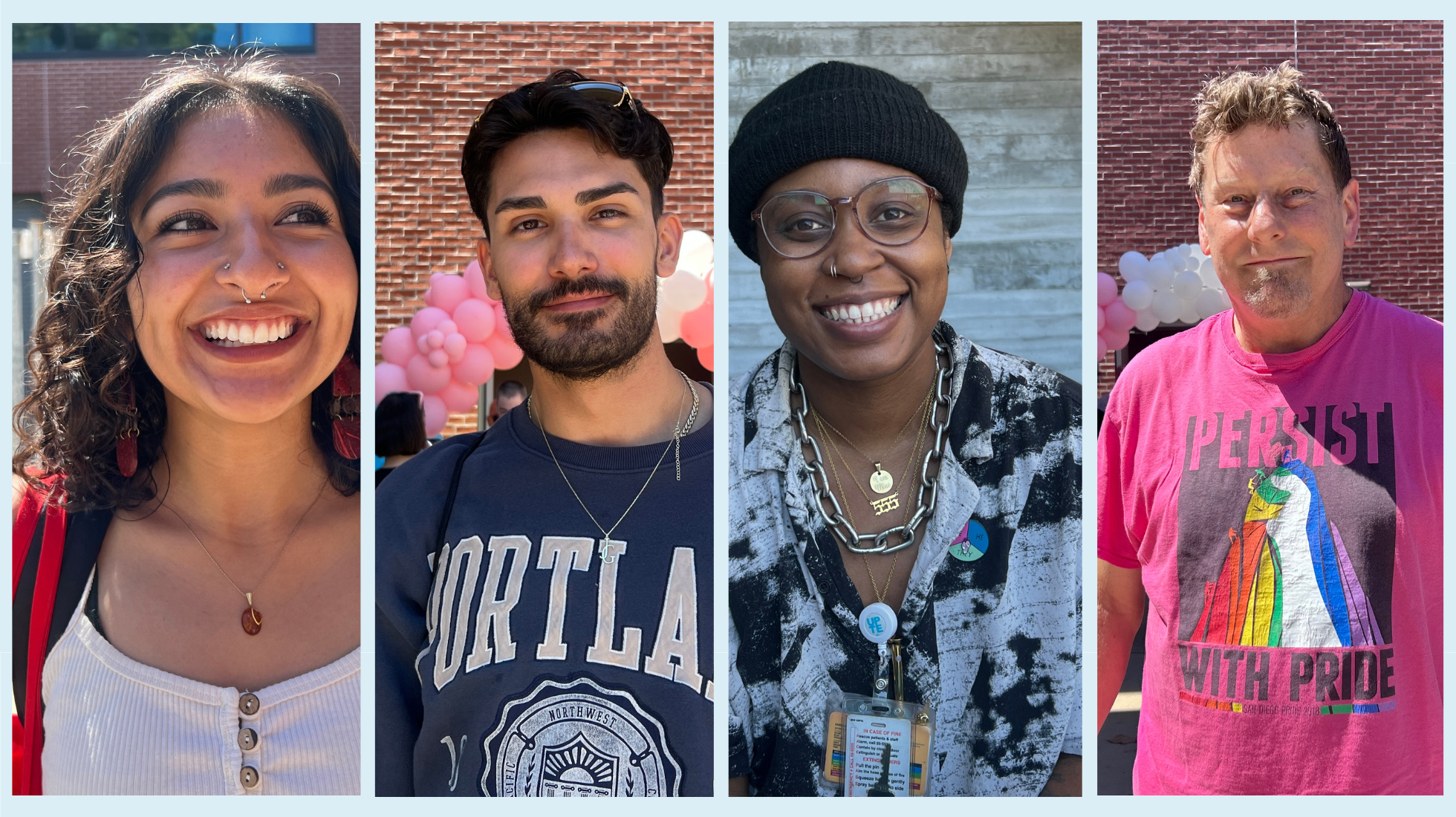Viviane Kimmanee, a 21-year-old biology major taking a Chicano/a studies class at San Diego City College, was excited to finally get to attend a community event.
When Kimmanee got an entire day off from work, she made the decision to attend the annual Binational Conference on Border Issues at the Centro Cultural de la Raza in Balboa Park.
“I want to see what all these conferences are about,” she said. “They’ve been happening all over and I’m finally able to come today.”
This year’s binational conference, held earlier this month, brought members of the Sexta Grietas del Norte, a Zapatista-affiliated U.S.-based support network, to serve as panelists.
The Sexta Grietas del Norte was formed as a response to the Zapatista Army of National Liberation’s (EZLN) “Sixth Declaration of the Selva Lacandona” communiqué, which provided a history of the EZLN and stated, among other things, the vital importance of democracy and power residing amongst the people they served.
Among the panelists were Maritza Gerónimo and UCSB Ph.D candidate Kristian Vázquez. Gerónimo and Vázquez both recognized the community college students in attendance and highlighted their own experiences as transfer students.
City College Chicana/o Studies professor Octavio Garcia, joined the panelists as a moderator.
San Diego State University professor of Chicano/a/x Studies Roberto Hernández, who also served on the panel, shared a history of the Zapatistas by beginning with the 1968 massacre at Tlatelolco, where university students who were peacefully protesting Mexican government policies during the Olympics were massacred by the Mexican soldiers.
In response, student activists who felt threatened by the government’s actions took to the mountains with the intention of bringing their Marxist and Maoist politics to the indigenous communities in the region, Hernandez said.
“Little did they know … that it would be not them transforming the indigenous communities of Chiapas, but the other way around,” he added. “That they themselves would be transformed in the process and from Maoistas, (to) instead become Zapatistas.”
As this was going on in Mexico, Hernández said, the Chicano movement was growing in the U.S.
In 2020, the Zapatistas released an announcement they called “Part Six: A Mountain on the High Seas.”
In this statement, they announced that over the next 10 years they would be traveling the world to learn more about the struggles going on around the world, starting with Europe.
“There is struggle in Europe, there is struggle in Africa, there is struggle in Asia, struggle in the U.S.,” said Gerónimo, who is also a Ph.D candidate at UCLA, “So they (the Zapatistas) wanted to go learn what that was and continue building bridges.”
Gerónimo and Vázquez, who both identify as Chicanx, joined the Zapatista delegation in its world tour and talked about their conflicting experiences in joining the Zapatistas in Madrid, Spain.
“It’s still hard to sit with, it’s still hard to talk about … in terms of feeling this history of colonialism surrounding me but also being there with the Zapatistas and with the communities in struggle, listening,” Gerónimo said.
They showed images of the Zapatista parade in Madrid, where they celebrated their 500-year-long resistance.
Today, the Zapatistas in Chiapas face yet another challenge: the building of the Mayan train.
The construction project faces opposition from indigenous communities and gained notoriety from environmentalists for its invasiveness into pristine jungles in southern Mexico and its displacement of native people in remote rural communities.
“Now, the government has made it their agenda to eliminate them, and many of these communities that are being targeted have Zapatista connections, or are themselves becoming Zapatistas because of the resistance,” said Garcia, who was one of the organizers of the event.
After the panel, the presenters and attendees broke out into groups to discuss what they learned. Five groups of six to nine participants talked about a variety of topics inspired by the activism of the Zapatistas.
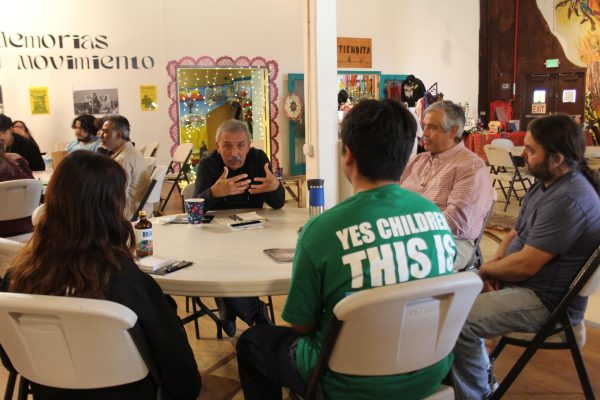
One group consisting of students from multiple San Diego Community College District campuses discussed feeling overwhelmed by the need to mobilize around various urgent issues while struggling to sustain themselves and simultaneously perform well academically.
When in Spain, the Zapatistas shared that their resistance was still alive after “only five hundred years.” Hernández shared to the attendees that slowing down is also a form of resistance.
Another group noted the importance of identifying the lifestyle changes and sacrifices to be made collectively and individually for revolutionary ideas to be taken from a theoretical state to a sustained physical process.
The group speaker offered that movements require an active embodiment of the changes they want to see. If agents for change want to see a different world, then they should be willing to radically change along with it, the speaker said.
As the discussion took place, a taco stand began to be set by the gardens outside as a part of the event. The scent of carne asada, al pastor, and chicken wafted into the building and Garcia invited attendees to partake in the food provided by the event.
Students and community members continued the conversations inspired by the panelists over freshly made tacos and aguas frescas.
Mixtec rap artist Una Isu, who’s rapper name translates to Eight Deer in Mixtec, was invited to perform for the conference.
“My goal with music is to embrace who we are and also show that we’re still here,” said the trilingual rapper who grew up in a farm working community in Fresno.
As Una Isu prepared for his set, incoming attendees moved closer to the stage and cheered when the Oaxacan native rapped a few verses for a sound check.
“We talk a lot about our ancestors, but we’re here, the community is still here, we are here and we are not leaving, yes or no?” he said in Spanglish during his performance, as the crowd cheered.
Kimmanee, who is of mixed but mostly Southeast Asian descent, is like many non- Chicanx students at City College who are taking advantage of attending a school whose mission revolves around social justice.
“A lot of our community is on the borderland and are Chicano, so I would like to know more about that history,” she said.
For Kimmanee, it’s important to learn about the history of the community she inhabits. She’s taking a Chicano/a Studies class because she wants to learn more about social movements and her place in them.
The sentiment echoes Garcia’s intention for putting the event together.
“Through our own self reconstruction, we can understand those very localized forms of oppression and realize that challenging those forms of oppression at a very local level is in itself an expression of Zapatismo,” Garcia said.
City Times has updated its style guide to standardize the use of the word Chicanx when referring to individuals together who identify as Mexican-Americans living in the U.S. The Associated Press Stylebook recommends using the word Chicano; however, editors felt the term did not effectively include all members of the LGBTQ+ community.

